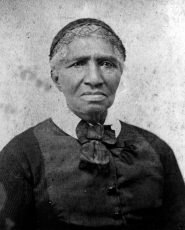By Donna Wichelman
How many of you read historical fiction and why? I asked this question in an informal survey on Facebook to get a pulse on what makes the genre compelling.
Many answers complied with what you would expect: “It makes history come alive; because I love the eras and events surrounding the stories; it transports me to a bygone time.”
More fascinating than the conventional answers, however, were the ones in which people expounded upon what they expected of the books they read. One person said it’s essential the author commits to extensive research of historical facts and place. Another said they didn’t enjoy reading an historical novel when the author obviously didn’t do their research and used language and tools inappropriate for the era. A plot could be compelling, but if the author had done sloppy research, they’d put the book down. A third person remarked that accuracy makes the reading compelling and credible.
My informal survey had yielded what I’d hoped. As authors, especially Christian writers, we do well to maintain good faith in our work. It isn’t enough that we create compelling characters and intriguing plotlines. Our audience expects us to do our homework and regards integrity important.
While the debate across secular circles rages about whether historical fiction has an obligation to be factually accurate, it seems clear that Christian authors must consider how we approach this topic. Revisionist history abounds in the secular world, but in the inspirational market, we not only have our readers to consider but the God of all ages to reckon with. Vast differences prevail between Francine Rivers and Dan Brown, for example, and what we understand about how God has intervened in our world throughout history is dramatically divergent and has extensive consequences for reader and author alike.
Marrying the two words together—historical and fiction—amounts to an oxymoron.

Clara Brown, (aka “Aunt Clara”) invested in mining property in Georgetown in the 1860s and 1870s.Used by Permission of the Stephen H. Hart Research Center at History Colorado, Scan #10027902
Sometimes the real-life stories of people from an era are fascinating enough to want to work them into a novel. In my research of 1870s, Georgetown, Colorado to write my current Irish Legacy Series, I discovered a former African-American slave who had been freed by her owner before the Civil War and had ridden into Colorado, stealing the hearts of people everywhere in the mining towns of the Rocky Mountains.
Instilled with faith and prudence, Clara Brown transcended her circumstances to triumph over tragedy. I wanted her wisdom and strength to pour into my Irish immigrant protagonist, Anna Sullivan. I cobbled together bits and pieces of Clara to create a character full of grace and generosity who would challenge and encourage Anna through her trials, riding into a new and uncertain future.
A sage Christian author represents God and history with the utmost integrity, not only for their readers but for their accountability before God. We can accomplish that in historical fiction by portraying an accurate portrait of history, staying true to the language, culture, and technology of an era within the context of a fictional plotline.
To read a brief history and accompanying essay on the true story of Clara Brown, go to https://mailchi.mp/dff7067a3aba/discover-the-adventure-1611245
Informal #survey says #readers demand #historical #integrity from their #Historical #Fiction #novels making authors’ research an integral part of creating #compelling #characters and #intriguing #plotlines @DonnaWichelman #ACFWBlogs… Click To Tweet Donna Wichelman was a communications professional before writing full-time. She has authored short stories, essays, and articles in various inspirational publications. She has a two-book contemporary Christian romantic suspense series based on the history of the ancient Waldensians, a persecuted and martyred people during the Middle Ages. Donna is currently working on her Irish Legacy Series. You can find Donna on Facebook, Twitter, and Pinterest.
Donna Wichelman was a communications professional before writing full-time. She has authored short stories, essays, and articles in various inspirational publications. She has a two-book contemporary Christian romantic suspense series based on the history of the ancient Waldensians, a persecuted and martyred people during the Middle Ages. Donna is currently working on her Irish Legacy Series. You can find Donna on Facebook, Twitter, and Pinterest.

Comments 3
Great article, Donna. As an author, I know if you don’t like research, historical fiction is not your genre, and really most genres have research somewhere in their preparation. I know your stories hold integrity. Cheers
They say we should see days of yore
through the lens of here and now,
and that we must just ignore
that which made the past, and how.
They say old days are full of hate,
and that we are now of the light;
the heroes past deserved their fate,
to validate their victims’ plight.
But this is hogwash, for today
bigots come with another name,
and they are not turned away
by a land that loves its shame.
They were not perfect,men of old,
but still, they need their stories told.
I love your reminder that we represent God and history. Excellent article!